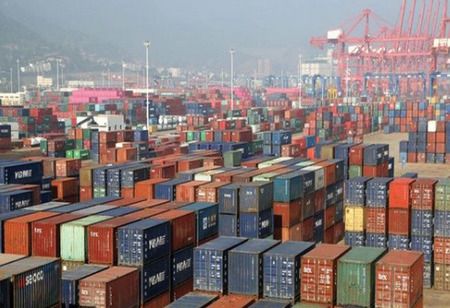
India's Trade Deficit Likely Narrowed to $ 21.5 Billion


A report by Union Bank of India revealed that India's trade deficit has been skimmed to $ 21.5 billion last month, down from $ 23 billion in January.
Additionally, the report signaled that the geopolitical risks, especially concerns over tariffs, is believed to persist to influence trade dynamics.
In the report, "Merchandise trade deficit narrowed in Feb'25 to $ 21.5 billion vis-a-vis $ 23.0 billion a month ago".
It recommended that the reduction in the merchandise trade deficit was primarily caused by a moderation in the Non-Oil-Non-Gold (NONG) segment, along with seasonal factors during the quarter.
The report indicates an improvement, and at the same time, it added that the extent of recovery in trade balance can likely go down due to growing concerns over new trade restrictions and tariff increases following the change in the US administration.
The oil trade deficit is also expected to have narrowed in February, supported by a fall in global Brent crude oil prices. Brent crude dropped to $ 74.95 per barrel in February from $ 78.35 per barrel in January.
A notable trend was the decline in oil imports from Russia, which fell 14.5 per cent month-on-month to 1.43 million bpd, the lowest level since January 2023. As a result, Russia's share in India's total oil imports dropped to around 30 per cent in February, a sharp decline from the 2024 average of approximately 38 per cent.
Although crude oil prices eased in February, the report noted that the impact on imports might be delayed since contracts are signed in advance. This could explain why India's oil import bill declined in January compared to December, even though prices and volumes had increased sequentially.
Gold imports are estimated to have risen to 70 tonnes in February, up from 40 tonnes in January. This increase was likely driven by seasonal demand during the marriage season.
Additionally, investment demand for physical gold remained strong due to pressure on riskier assets like equities. The report highlights that with ongoing global economic uncertainties under Trump's second term, the demand for gold as a safe-haven asset is expected to persist.
Also Read: 10 Industry Leaders Opine on Union Budget 2025